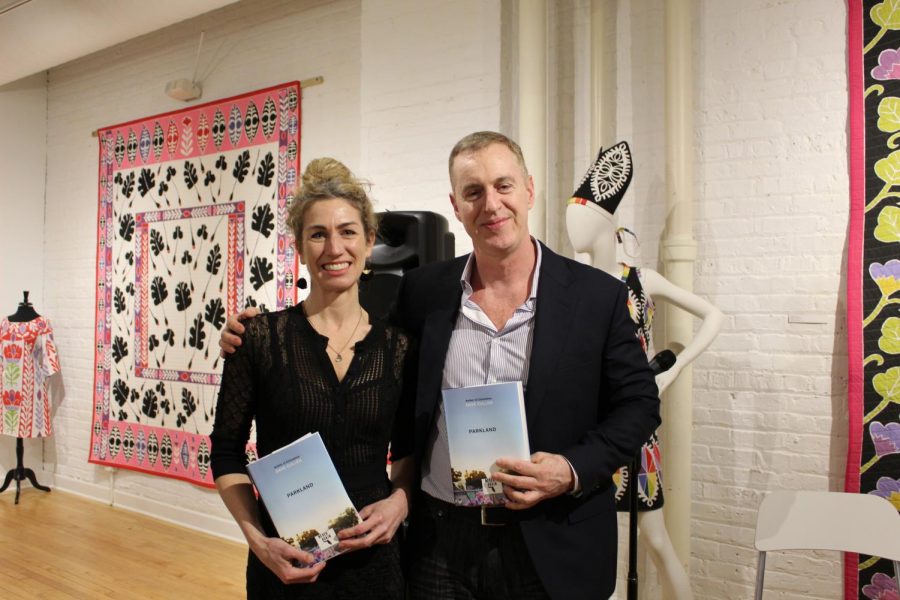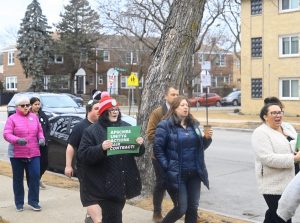Dave Cullen Talks Parkland and How Response Mass Shootings Has Changed Since Columbine
Stevens and David posing with David’s “Parkland: Birth of a Movement,” at the Swedish American Museum.
February 26, 2019
New York Times bestselling author, David Cullen, sat down with Chicago Tribune columnist Heidi Stevens on Thursday, Feb. 21, to discuss his new book, “Parkland: Birth of a Movement,” at the Swedish American Museum.
Cullen, who is a New York Times Best Selling author for his previous work on the first mass school shooting to rock the nation “Columbine,” has written for Vanity Fair, Buzzfeed, Politico Magazine and The Washington Post about tragedy.
The event was coordinated by Women & Children First, an independent bookstore in Andersonville, but due to the overwhelming support, the event had to be moved to a bigger space.
Stevens led the discussion, asking Cullen about his work specifically with the students of Parkland, who started a movement regarding gun control across the nation after the mass shooting at their high school that killed 17 people on Feb. 14, 2018.
Cullen discussed that the difference between Columbine and Parkland was that the students knew what to do and reacted differently than from previous incidents. Cullen recalls seeing an interview with David Hogg, a student who survived the shooting at Parkland, who said, “I watched the whole thing on the elevator and my first thought was: ‘This is not a day one survivor. They aren’t like this.’ I was amazed like everybody the first time they saw him but I thought ‘that’s one in a million.’”
Incidents like Parkland are becoming more prevalent and casualty numbers due to mass shootings are rising. According to The Washington Post, since 1966, there have been 1,153 people killed in mass shootings in the U.S. This number includes the victims of the Henry Pratt Company shooting in Aurora last week when a disgruntled employee opened fire for being terminated.
Gun violence in Chicago has been a topic of great controversy for years. In August of last year, 66 people where shot in one weekend: 12 of them died. Students from Parkland embarked on a nationwide tour to aimed to curb gun violence, making Chicago their first stop on June 15. Cullen talked about why the Parkland students focused on Chicago and aimed to bring awareness to the lack of attention the media has given local teenagers regarding gun violence, some of whom ended up being in Cullen’s book.
As Cullen discussed with Stevens, this is also a testament with how media savvy people are now and how that has pushed the movement forward. “Hoggs started filming his documentary while he was in lockdown, interviewing people and getting commentary. He got home and decided he needed B roll. He went back,” said Cullen.
“The reason he did that documentary is because he decided: ‘if I die in here, I want help to make sure this doesn’t happen again and I am going to leave a powerful record of what it is like to die, to await your death and be gunned down,” said Cullen.







